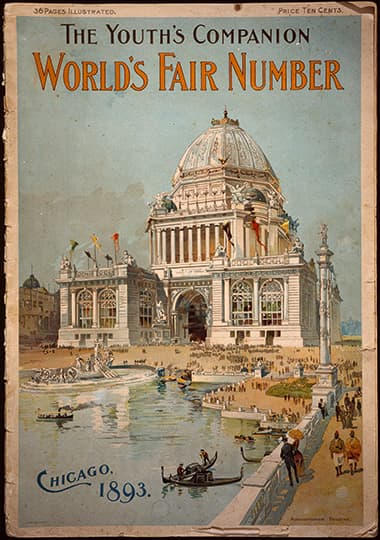1878
Lorenz Adalbert Enzinger invents the beer filter at the age of just 29. Predicting that it will prove a valuable business asset, he registers it at the Imperial Patent Office in Berlin.

1879
Enzinger opens a factory and by the middle of the year has sold his first six machines.
1880
At the Brewers’ Meeting in Munich Enzinger presents his filter machines – and the first barrel and bottle fillers.

1883
More space is required: Enzinger and his workforce of over 120 move to the Wiesenmühle in Worms-Pfeddersheim.
1886
Great cause for celebration: the thousandth Enzinger filter is delivered to its new owner by horse and cart.

1893
Success takes on international proportions: Enzinger presents his machinery at the World Fair in Chicago to an enthusiastic audience.

1897
The enterprising inventor is not allowed to savor his success for long: Lorenz Adalbert Enzinger dies at the age of just 48. His company for brewery machines becomes a corporation named the Filter- und Brautechnische Maschinen-Fabrik Act.-Ges., vorm. L. A. Enzinger.
1899
Enzinger’s successor takes over the helm: his son Karl finishes his engineering degree and becomes head of the company. He acts as technical manager until 1937.
1904
Rivals never rest: in Mannheim three manufacturers of brewery machines merge to form the Unionwerke Aktiengesellschaft. They present Enzinger with some strong competition.

1908
Enzinger cooperates with its Mannheim competitor for the first time 12 years before merging to form Enzinger-Union-Werke AG.
1912
Enzinger also expands: the company acquires a number of companies in Berlin and machine manufacturers in Dresden and Prague. The aim is to move into Eastern and Southeastern Europe in particular.
1915
The First World War heralds a period of change: until 1922 the Unionwerke AG also makes trucks.
1918
With the end of the First World War Enzinger can again fully devote itself to its core areas of expertise. The company has long established itself as a firm partner to the beverage industry – from breweries to dairies to large wine cellars.
